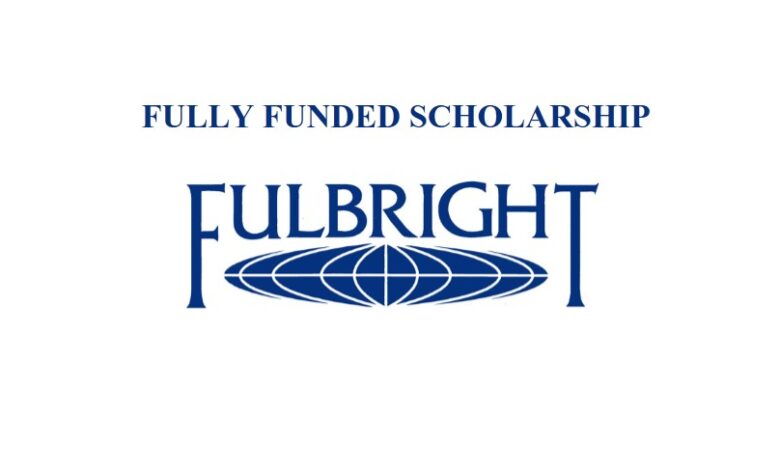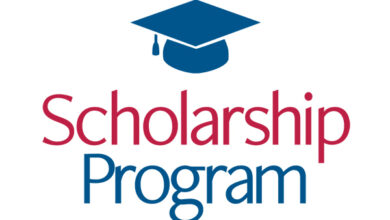Fulbright Scholarship: Eligibility, Application Process, and Benefits

Introduction
Studying abroad can be expensive, but what if you could study for free? The Fulbright Scholarship offers students, scholars, and professionals the chance to pursue higher education, conduct research, or teach in foreign countries without financial burdens. This guide covers everything you need to know about this prestigious program.
What is the Fulbright Scholarship?
The Fulbright Scholarship is a fully funded international exchange program that provides grants for study, research, and teaching. Established by the U.S. government, the program aims to promote mutual understanding between nations by enabling cultural exchange through education.
History and Background of the Fulbright Program
The program was initiated in 1946 by U.S. Senator J. William Fulbright to encourage global cooperation and diplomacy. Today, the Fulbright Program operates in over 160 countries, impacting thousands of scholars worldwide.
Types of Fulbright Scholarships
Fulbright U.S. Student Program
This program is for American students who wish to study, research, or teach abroad.
Fulbright Foreign Student Program
International students can apply to study or conduct research in the U.S.
Fulbright Specialist Program
This program connects U.S. professionals with institutions abroad for short-term projects.
Fulbright Visiting Scholar Program
For international scholars, researchers, and professors to visit the U.S. for academic collaboration.
Who is Eligible for the Fulbright Scholarship?
Eligibility varies by country, but in general, applicants must:
- Have a bachelor’s degree or equivalent.
- Demonstrate strong academic achievements.
- Have leadership potential and community engagement experience.
- Be proficient in English (for programs in English-speaking countries).
Countries Covered by the Fulbright Program
The Fulbright Scholarship is available in over 160 countries, covering regions such as:
- North America
- Europe
- Asia and the Pacific
- Middle East and North Africa
- Sub-Saharan Africa
- Latin America and the Caribbean
How to Apply for the Fulbright Scholarship
Step 1: Research the Requirements
Check the official Fulbright website or your country’s Fulbright Commission for details.
Step 2: Prepare the Necessary Documents
- Academic transcripts
- Personal statement
- Letters of recommendation
- Research proposal (if applicable)
Step 3: Submit the Online Application
Complete the application form on the official Fulbright website.
Step 4: Attend an Interview
Shortlisted candidates are invited for an interview.
Step 5: Wait for the Results
If selected, you will receive further instructions on visa processing and departure.
Required Documents for Fulbright Application
- Resume or CV
- Statement of Purpose
- Research Proposal
- Letter of Invitation (if required)
- Language Proficiency Test Scores
Selection Process and Criteria
The Fulbright selection committee evaluates candidates based on:
- Academic excellence
- Research potential
- Leadership skills
- Cross-cultural adaptability
Benefits of the Fulbright Scholarship
- Full tuition coverage
- Living stipend
- Health insurance
- Travel allowance
- Networking opportunities
Challenges and Common Mistakes to Avoid
- Missing deadlines
- Weak personal statement
- Lack of preparation for the interview
Tips to Increase Your Chances of Winning
- Start early
- Write a compelling personal statement
- Get strong recommendations
- Practice for the interview
Life as a Fulbright Scholar
Scholars engage in research, attend seminars, and build international networks while experiencing a new culture firsthand.
Success Stories of Fulbright Scholars
Many Fulbright alumni have become leaders, diplomats, and researchers, contributing to global development.
Conclusion
The Fulbright Scholarship is an excellent opportunity for students and professionals seeking global education. By following the right steps and preparing well, you can increase your chances of securing this prestigious scholarship.
FAQs About the Fulbright Scholarship
1. How competitive is the Fulbright Scholarship?
It is highly competitive, with acceptance rates varying by country.
2. Can I apply for more than one Fulbright Program?
You can only apply to one program at a time.
3. Do I need to know a foreign language?
It depends on the country; some programs require language proficiency.
4. What are the age limits for the Fulbright Scholarship?
There is no strict age limit, but most applicants are young professionals or graduate students.
5. Can I bring my family with me on the scholarship?
Some programs offer dependent support, but it varies by country.
